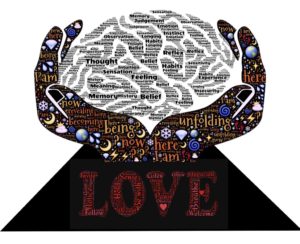Self-acceptance

Self-acceptance
One of the things I love about blogging is that I have the freedom to change my mind. If I wrote a book, and I still might, once it’s out there, you can’t take back your words. With a blog, all it takes is a few keystrokes and you can edit your message. The past couple of months have been a learning and growing experience. I’ve made plenty of mistakes, but that’s okay, that’s just part of being human. I feel bad that sometimes things I’ve said have led to hurt feelings. That is never my intent, but I sometimes get a little too passionate about my recovery. If I have said something that has hurt you, I’m truly sorry. I’m learning to weigh my words more carefully and that’s a good thing. If I say something to which you take offense, please send me a message. I would far prefer to be able to address something directly than to try to decipher cryptic hints on social media. Writing is a new experience for me and I don’t always express what I’m trying to say as well as I could. Miscommunication happens. I wish it didn’t.
When I decided to write about my recovery from Functional Neurological Disorder, I did it with a little trepidation. I knew that exposing my life to the internet came with risks. Not everyone is going to agree with what I say. Some may vehemently disagree with me, and they have (thank you, Twitter!). The good thing about differing opinions is that we are exposed to a way of thinking that we wouldn’t have considered otherwise. The only things I truly know about FND are the things that I have experienced. My experiences are not everyone’s experiences. What has helped me won’t help everyone. If it were under my control, I would erase FND from the face of the earth. Since I don’t have that power, I hope that I can learn from others and they can learn from me and eventually we can both grow and make a world where living with FND is a little easier.
There have been times in the past couple of weeks when I’ve felt like just hitting the delete button and erasing my blog from cyberspace. It would be far easier to just sit in my own little sphere of recovery and ignore the rest of FND patients. When my motives have been questioned, I have felt hurt. I’m human and still learning my way around dealing with emotions in a healthy way. It’s one of my greatest weaknesses. Frankly, I suck at it. I’m trying and learning, but allowing the universe at large to read about my life and comment on it is really hard some days.
Autumn often brings a gray cloud of depression for me as the days grow shorter. I haven’t had a depression relapse for a long time, but I’m finding this year challenging. Many of us with Functional Neurological Disorder struggle with other brain disorders as well. For me, anxiety, depression, migraines, and PTSD all contribute to my mixed up brain. When one flares, my risk of an FND relapse increases. I am doing my damndest to not let that happen. I am challenging those thoughts in my head of “you aren’t good enough”, “you don’t know what you’re talking about”, and “this is too hard”.
Why am I telling you this? I decided when I started to tell my story that it was going to be a true story and a vulnerable story. The journey through Functional Neurological Disorder is in no way an easy one. I believe that the world is a better place when we use the things we have learned during our personal battles to help other people along their difficult journeys. I like the phrase “Bloom where you are planted.” I’ve been planted in the wonderful world of FND. I’d prefer not to live here but since I do and I’ve figured out some things (not everything by any means), I want to put it out into the universe just in case it can make someone else’s road a little easier. It’s a rough road, with many steep hills and blind corners. Even though I might be further along the road than you are, that doesn’t make your journey any less valid or mine superior. We are both travelers struggling to make the best of a tough situation.
Originally I thought that the first step to healing from FND was acceptance of the diagnosis. I was wrong. I still think that it’s a very important step, but I don’t think that it’s possible without a more important first step, acceptance of yourself. People end up with FND for all sorts of reasons- trauma, surgery, illness, and my favorite, idiopathic, a fancy medical word that means we don’t have any idea why, it just happened. Whatever the reason that landed you in FND world, I would bet that you didn’t arrive without some battle wounds. Most of us arrived here after a torturous journey filled with fear, confusion, and sometimes blame. It feels like our bodies betrayed us, giving up the normal function we had taken for granted. Like soldiers in battle, we arrive exhausted, aren’t sure we can go on, and feel like surrendering. None of this makes sense and there aren’t too many medics on the battlefield who want to help us. We feel alone, isolated, misunderstood, and deserted. We lose faith in ourselves and sometimes our will to continue to fight. We feel beaten and we don’t know what to do about it. Pre-FND, we may have considered ourselves to be strong people. Many of us lived successful lives, but who are we now? We feel like a shell of our former selves. Our confidence is shattered.
If I could do one thing for you, it would be to restore your confidence. You are worth the fight. It isn’t easy, but you can go on. Those wonderful qualities that you had before Functional Neurological Disorder reared its ugly head are still in there. You don’t deserve FND. You didn’t do anything to cause it. If anyone has suggested otherwise, they are wrong. This disorder is just bad luck. It doesn’t define you.
Whatever state you are in today, whether that is in a wheelchair, stuttering, jerking, flailing, falling, seizing, or any of the myriad of other symptoms this disorder can cause that our society looks at as weaknesses, as disability, as inferior, that is not YOU! Your symptoms are just a sign that you live in a frail body, vulnerable to disease, just like every other human. You don’t have to like your symptoms, who would? However, you do need to love you. Embracing your strengths and recognizing your value are critical to living a satisfying life. You are so much more than your illness. When you can accept yourself as you are, even if you don’t like the disease you face, you are on the road to recovering your self-worth, and that’s the only recovery that really matters.
Wishing you the best that life has to offer,

Thankyou for sharing Max. 4.35am in the UK, another sleepless night. So glad I found your blog. I needed to read about self love.
Thanks for your kind comment, Anna. Most of could use some help with this topic. Are you familiar with Kristin Neff? Her website has some great resources. https://self-compassion.org/
All the best,
Max